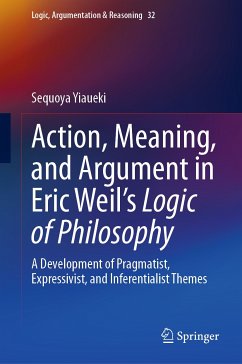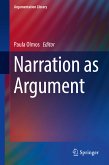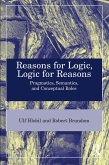The author draws comparisons between Weil's work and that of Robert Brandom. Brandom's inferentialism creates a sophisticated program at the junction of pragmatics and semantics, philosophy of language, logic, and philosophy of mind. The monograph builds on these insights in order to show how an inferentialist reading of Eric Weil is fruitful for both Weilian studies and for inferentialism. This volume will notably be of interest to scholars in philosophy, argumentation theory, and communication studies.
Dieser Download kann aus rechtlichen Gründen nur mit Rechnungsadresse in A, B, BG, CY, CZ, D, DK, EW, E, FIN, F, GR, HR, H, IRL, I, LT, L, LR, M, NL, PL, P, R, S, SLO, SK ausgeliefert werden.









